Are you experiencing oral problems such as bleeding gums, dry mouth, or inflamed gums? It might surprise you to know that these are related to your daily oral habits.
Your daily routine has a big effect on your general health. You won’t be able to function well if you don’t take care of your body, and the same goes for your oral health. Perhaps you’re not sure which of the things you consistently do are bad for you. Well, the good news is that this article will tell you what those habits are so you can start breaking them today!
Below is a list of habits that may be responsible for your oral health problems.
Not Brushing Or Flossing Enough
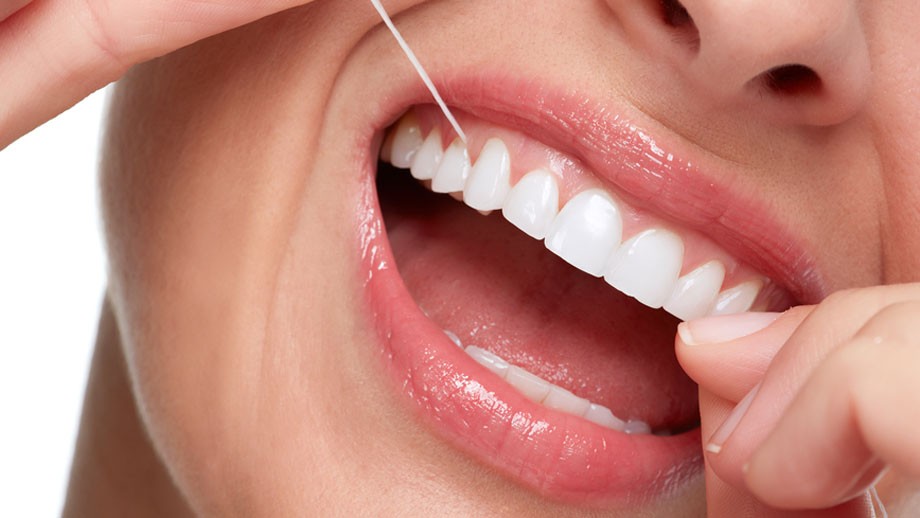
If you’re not brushing and flossing regularly, plaque will build up on your teeth. Plaque is a soft film that accumulates on the surface of your teeth and gums. It is made up of bacteria that could cause tooth decay or gum disease.
If you want to avoid oral diseases, make sure to brush your teeth twice a day using fluoride toothpaste and floss your teeth once a day. It is also highly recommended to have a professional dental cleaning every six months.
Drinking Soda

Sipping on soda every chance you get could lead to dental erosion as the strong acids will eat away the phosphate minerals found in your tooth enamel. So, even if you floss and brush your teeth regularly, you’re still vulnerable to oral health concerns.
Regular consumption of this sweet beverage may also contribute to weight gain, obesity, and possibly diabetes. To avoid these health woes, replace soda with water or other sugar-free beverages.
Eating Sugary Food
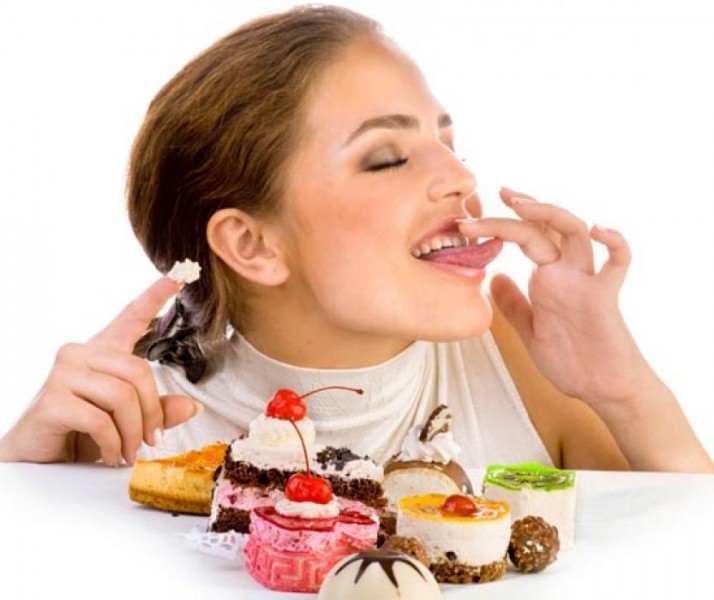
Cereal and cookies are pantry staples in most households. Also popular among kids and adults alike are candies. But be mindful that over-indulging in these high-sugar goodies could lead to tooth decay. This happens because bacteria in your mouth produce acid that could damage your tooth enamel. With a weakened tooth enamel, a dental cavity couldn’t be far behind. And if the dental cavity is left untreated, one possible result is a bacterial infection, which is usually accompanied by toothache, sensitivity to hot and cold temperatures, pain when chewing or biting, and swelling in the face.
If you’re the type who can’t say no to sweet treats, try to limit your intake and make sure to brush your teeth using toothpaste shortly after eating them.
Using Your Fingers to Get Food Out Of Your Teeth
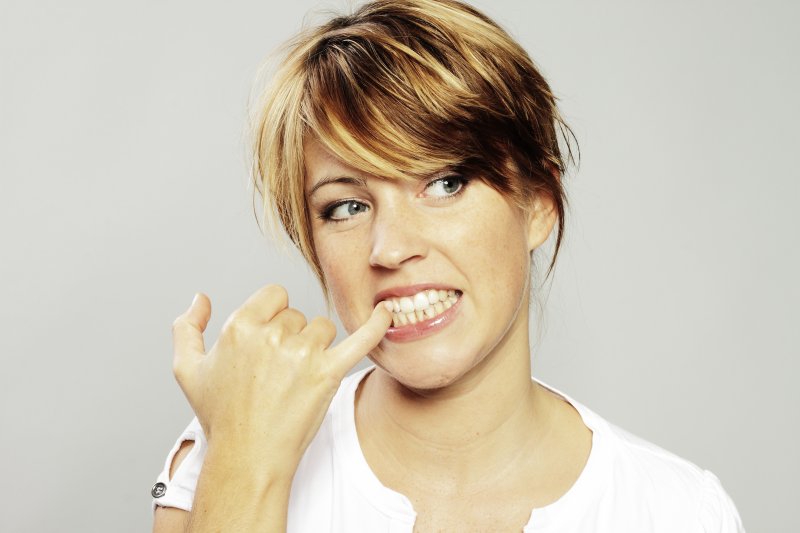
If you’re one of those people who instinctively use their fingers to get food lodged in their teeth, stop and consider how this habit is bad for you. Germs and bacteria could be sitting on your hands and under your fingernails. If you put your fingers inside your mouth without first washing your hands, then you’re bringing in these harmful elements.
As mentioned previously, bacteria in your mouth could cause a host of oral problems. That said, use a toothpick instead to dislodge any food particle stuck in your teeth.
Brushing Too Hard
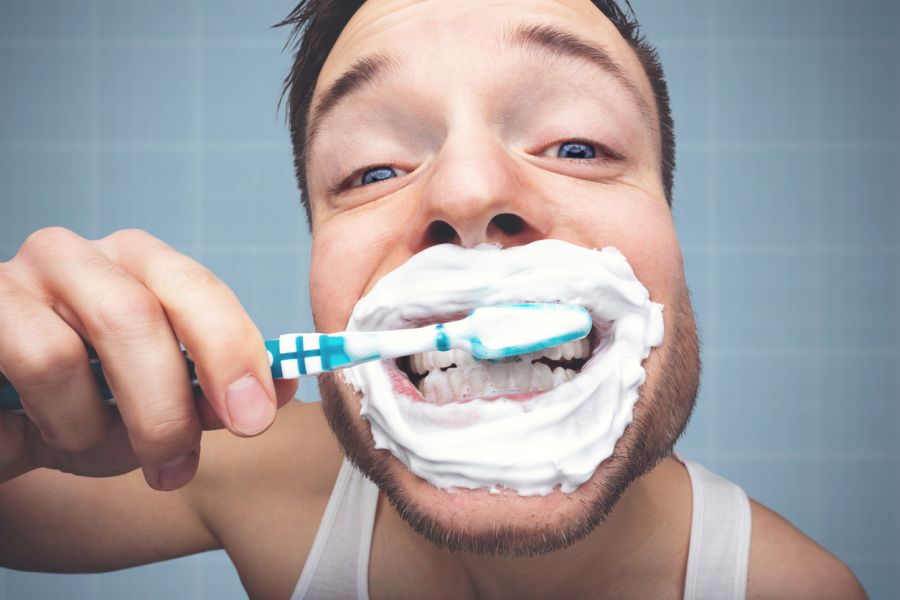
You could be thinking you’re giving yourself a thorough cleaning, but brushing too hard could do more harm than good. It could damage your tooth enamel, which could lead to sensitive teeth and tooth decay. It could also harm your gums, possibly causing receding gums or other gum diseases. Moreover, brushing too vigorously could make you more susceptible to mouth ulcers.
In brushing your teeth, proper technique is key, not intensity. Start by positioning your toothbrush at a 45-degree angle to your gums. Using short strokes, gently brush the outer, inner, and chewing surfaces of your teeth. Make sure to clean between the teeth.
Brush your teeth twice a day for two minutes each time. Use a soft-bristled toothbrush and replace it every three or four months
Grinding Or Clenching Your Teeth
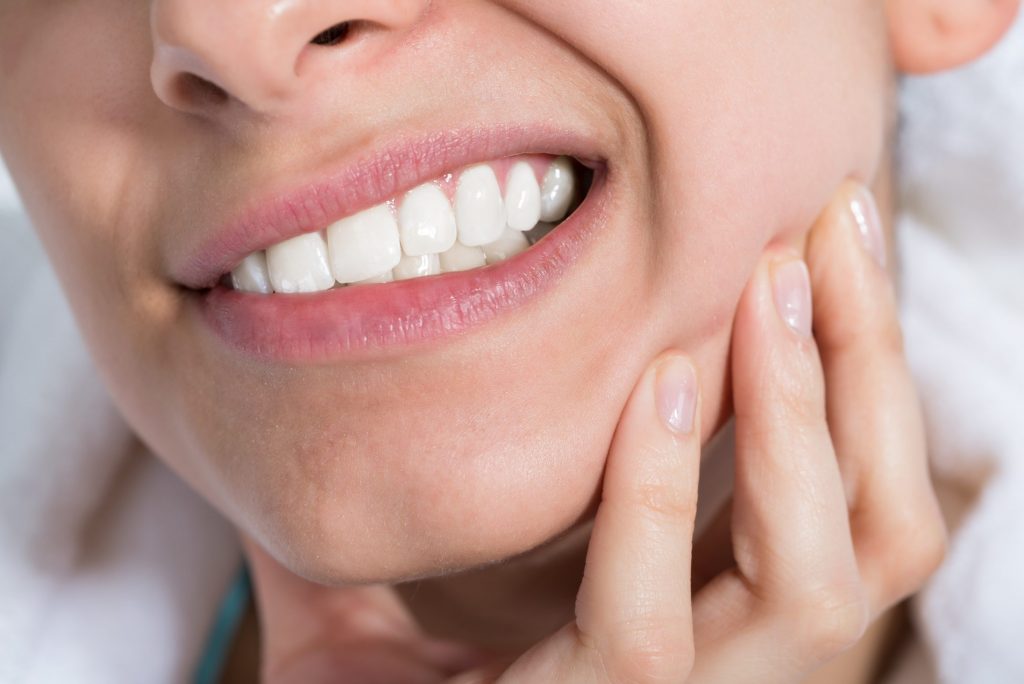
Do you grind or clench your teeth? You might not think so, but try to observe yourself whenever you’re going through strong emotions such as stress, frustration, anger, or anxiety. You could be grinding, gnashing, or clenching your teeth more often than you think without even realizing it!
Unfortunately, it could damage your teeth or dental restorations such as crowns, fillings, or veneers. If you grind your teeth while sleeping, then a mouthguard could probably help.
But if your teeth grinding is stress-related, it’s advisable to see a therapist who could help you with habit-reversal techniques.
Conclusion
Now that you’re aware of the habits that are harming your oral health, it’s time to break them. It’s never too late to give your oral health the attention it deserves. Be resolute in practicing good oral health care as this has a significant impact on your overall health.

A fervent champion for holistic well-being, graces this community with her expertise in health and fitness. With a solid educational foundation in physical fitness and a commitment to empowering others, Sara distills her extensive knowledge and experience into actionable insights. Her writing, firmly grounded in evidence-based practices, aims to demystify health complexities and inspire readers to cultivate sustainable habits for a balanced life. As a certified fitness trainer, Sara offers a well-rounded perspective on wellness. Join Sara on this transformative journey towards a happier, healthier, and more vibrant you.






Loading…